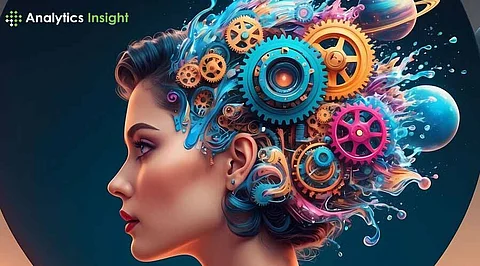

Technology doesn't merely shape the future; it molds society, ethics, and truth itself. As generative advancements surge in 2025, a decisive crossroads emerges. This isn’t science fiction with rogue machines; it's reality, where technology’s influence on ethics, privacy, and trust is pressing and unavoidable.
GenAI or Generative AI, with all its creative prowess, presents as many risks as rewards. And while innovation is thrilling, it’s the ethical dilemmas that deserve undivided attention. Here are the eight pressing ethical dilemmas that stand at the center of this evolving landscape.
Picture this: a convincing video of a world leader declaring war. It's terrifying, alarming, and completely fake. That’s the dark side of hyper-realistic deepfakes. In 2025, distinguishing reality from fabrication isn’t just challenging; it’s a battleground.
Deepfakes aren’t simple pranks. They can destroy reputations, distort election outcomes, and weaken trust in institutions. A single fake video can spark chaos, spreading lies before the truth can intervene.
The challenge? It's not just creating safeguards but keeping up with how rapidly fake content can spread. In a world where seeing is believing, deepfakes threaten to turn truth into just another version of events.
Here's an uncomfortable truth: technology learns from us, flaws and all. If historical data is skewed, whether by gender, race, or social status, then GenAI will reflect and magnify those biases.
Imagine a hiring system that favors certain demographics simply because it learned from biased data. Or financial algorithms that unfairly deny loans based on historical trends. It’s not malicious; it’s data-driven discrimination, hidden behind algorithms that seem objective but aren't.
Solving this isn’t about better code; it’s about confronting societal biases head-on and designing systems that challenge, rather than replicate, inequality.
Art, music, stories, creativity is no longer just human territory. But when GenAI produces content inspired by existing works, who owns it?
If a machine-generated song resembles a copyrighted track, is it the original artist's right? The developer’s? Or does it belong to the person who simply typed in a prompt? The lines are blurred. Current copyright laws are falling behind, leaving creators exposed and their work at risk of being copied without acknowledgment or reward.
The future of creativity is not only about innovation but also about respect, recognition, and safeguarding artistic integrity in the digital era.
Some decisions carry more weight than others, like a medical recommendation or a loan approval. However, when GenAI systems make these decisions, how they reach conclusions is often a mystery.
This “black box” problem isn’t just technical jargon. It's about trust. If a patient’s treatment plan or a legal ruling is based on an algorithm, shouldn't they understand why? Without transparency, faith in these systems erodes.
More than just powerful technology is needed. Clarity is essential. If it can't be explained, it shouldn't be trusted, especially when lives and livelihoods are on the line.
Words shape beliefs, and in 2025, GenAI holds the power to unleash an overwhelming tide of content, articles, comments, and entire social media campaigns, all aimed at influencing opinions.
Picture thousands of polished posts, quietly steering public sentiment without anyone noticing the push. It is not just one fake article but an entire web of manufactured opinions, crafted to polarize, confuse, or mislead.
The concern isn’t just misinformation but manipulation. When opinions are shaped by invisible forces, free thought becomes a target. And in this fight for authenticity, vigilance is the best defense.
Elections are built on trust. But what happens when fake political endorsements, manipulated videos, and crafted misinformation flood the digital space?
GenAI has the power to alter public perception, and in high-stakes political campaigns, a single misleading image or video could tip the scales. This isn’t just a risk to candidates; it’s a risk to democracy itself.
Regulating this space isn’t optional; it’s essential. Voters deserve to trust what they see, and democratic integrity depends on keeping deception out of the ballot box.
GenAI thrives on data. But it’s not just random information; it’s personal details scraped from social media, online behaviors, and even private conversations. And often, it’s collected without explicit consent.
Once data is out there, reclaiming it is almost impossible. A digital footprint can be absorbed into systems never agreed to. That’s not just a breach of privacy. It’s exploitation.
Empower individuals to control their data, ensure consent is genuine, and make transparency a fundamental requirement beyond just encryption.
When GenAI causes harm, who takes responsibility? The developer who built it? The company that deployed it? Or the user who misused it?
When machines generate defamatory content, victims are left seeking justice. But with vague laws, accountability is often dodged, leaving the affected without support. True accountability means more than addressing mistakes; it’s about setting clear standards that protect people and prioritize ethical practices.
GenAI is powerful. It can transform industries, redefine creativity, and reshape societies. But power without responsibility is dangerous. Every advancement comes with ethical strings attached, and ignoring them could lead to consequences that can't be undone.
Solutions aren't simple. They call for regulation, awareness, and a shared global commitment to ethics. Yet one truth stands firm: the choices made today will shape how technology molds tomorrow.
In the end, it's not about fearing innovation. It's about guiding it. Thoughtfully. Ethically. With humanity at its heart. Because the future of technology isn’t just written in code; it’s defined by the values chosen to uphold.
